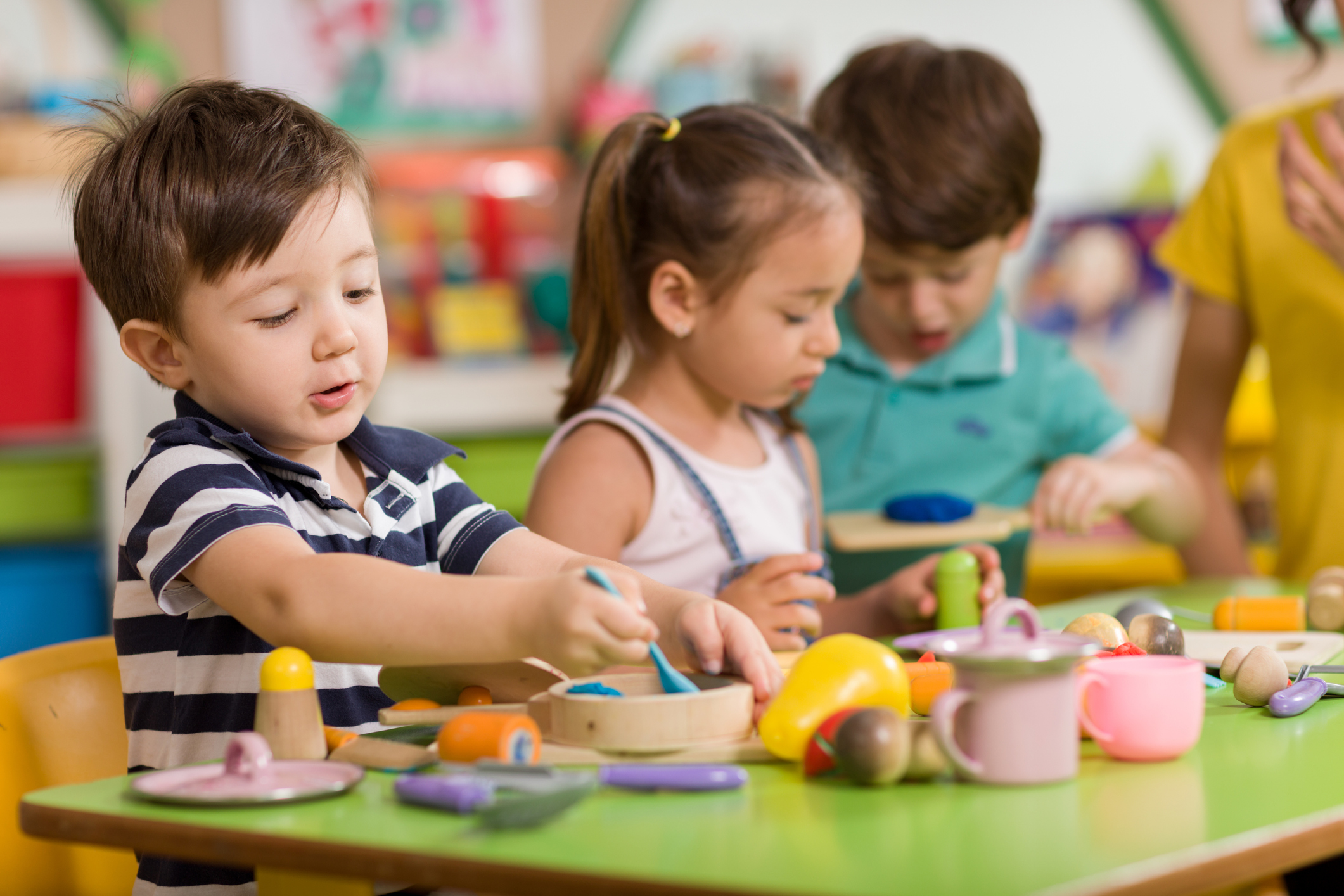
How To Foster Self Confidence in Your Preschooler
by Prescolaire | January 11, 2021
By the age of five, children have already developed confidence comparable in strength to the confidence, or lack of confidence they will eventually have as adults. That's important because confidence is linked to both a child's academic and social success. A child who lacks confidence may be unwilling to try new things or face challenges because they fear failing. This can eventually hold them back from success in their careers and life.
While it might seem like a daunting task to build self-esteem in a preschooler, there are some simple ways that parents can help. We've gathered a few suggestions for you here.
Love Unconditionally
Your child should always know you love him, even when he's at his worst. That doesn't mean condoning bad behavior, nor does it mean you don't provide discipline when it's necessary. It does mean using punishment as a way to curb or redirect bad behavior and not as an outlet for your anger at her actions. It also means providing closure when something does happen. Remember when your child acts like a monster, they may believe they are a monster unless you do something that shows them otherwise. That could be something as simple as saying I love you at bedtime or giving a hug when she says she's sorry.
Praise and Appreciate
Contrary to popular opinion, too much praise will not spoil your child. On the contrary, the only adverse effect of praise is if it doesn't seem genuine, so keep your praise to things worth complimenting. If your child wins or just tries her best, praise her. Appreciate his small efforts, whether sharing a toy with a sibling or helping set the table.
Assign Responsibilities
Small jobs can grow your preschooler's confidence. They'll also help your child accept responsibilities once they're older. There is a sense of accomplishment in completing a task that can't be duplicated in other ways, and the fact that an adult trusts her with a job can provide a huge self-esteem boost. Let him help set the table or make his bed. Slowly hand off jobs that you would normally do for her, like brushing her teeth or laying out her clothes.
Give Attention
Be present when your child wants your attention. That means really listening and asking questions. Make eye contact when your child is telling a story. You're telling her that what she has to say is important and that she is valuable to you. Take time to read him a story or play a game where he has your full, undivided attention.
Encourage Practice
No child is perfect at everything they try, and the temptation to allow them to give up and avoid humiliation may be overwhelming. However, it's important to encourage your child to practice what doesn't come easily to them. Mastering something that doesn't require much effort, doesn't provide remotely the same self-esteem boost that finally succeeding at something difficult does. Learning to practice and try will serve your child well in school, athletics and much later in their career. That said, it's also essential to support your child when she has honestly tried and is learning to dislike an activity.
Foster Problem-Solving
The temptation to solve all the problems our children encounter is a common parenting issue. But try to take a step back and let your child solve her problems whenever you can. This doesn't mean abandoning her entirely. Start by asking some guiding questions. What could you do? Is there another way you could try? It won't be easy. Having Mommy or Daddy solve a problem is hard to resist quick fix for any preschooler.
Take a Page from Science
Many of the same skills that make children strong in STEM and STEAM also help build self-confidence. Encourage your child's natural curiosity and value her discoveries. Allow him to make mistakes and to experiment. Children learn from mistakes and experimentation, and that learning will also foster confidence. Provide opportunities for learning and for experiences. These too, will create confidence.
Building your child's self-confidence is one of the greatest gifts you can provide as a parent. Self-confident children are happier, healthier and often more successful. Give your child a self-confidence boost, and you'll give them a boost in other ways too.

